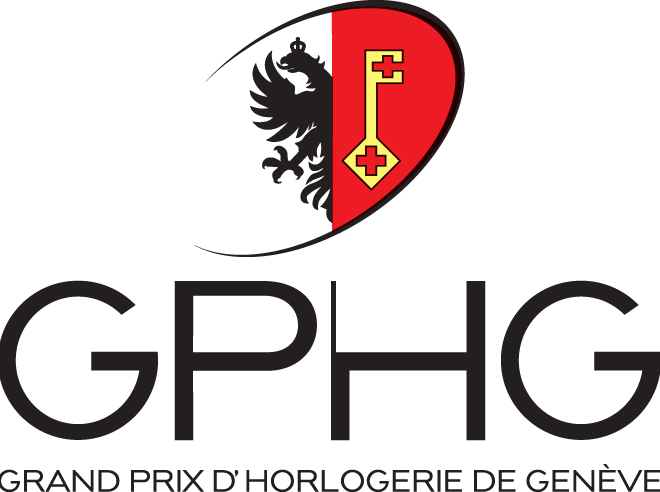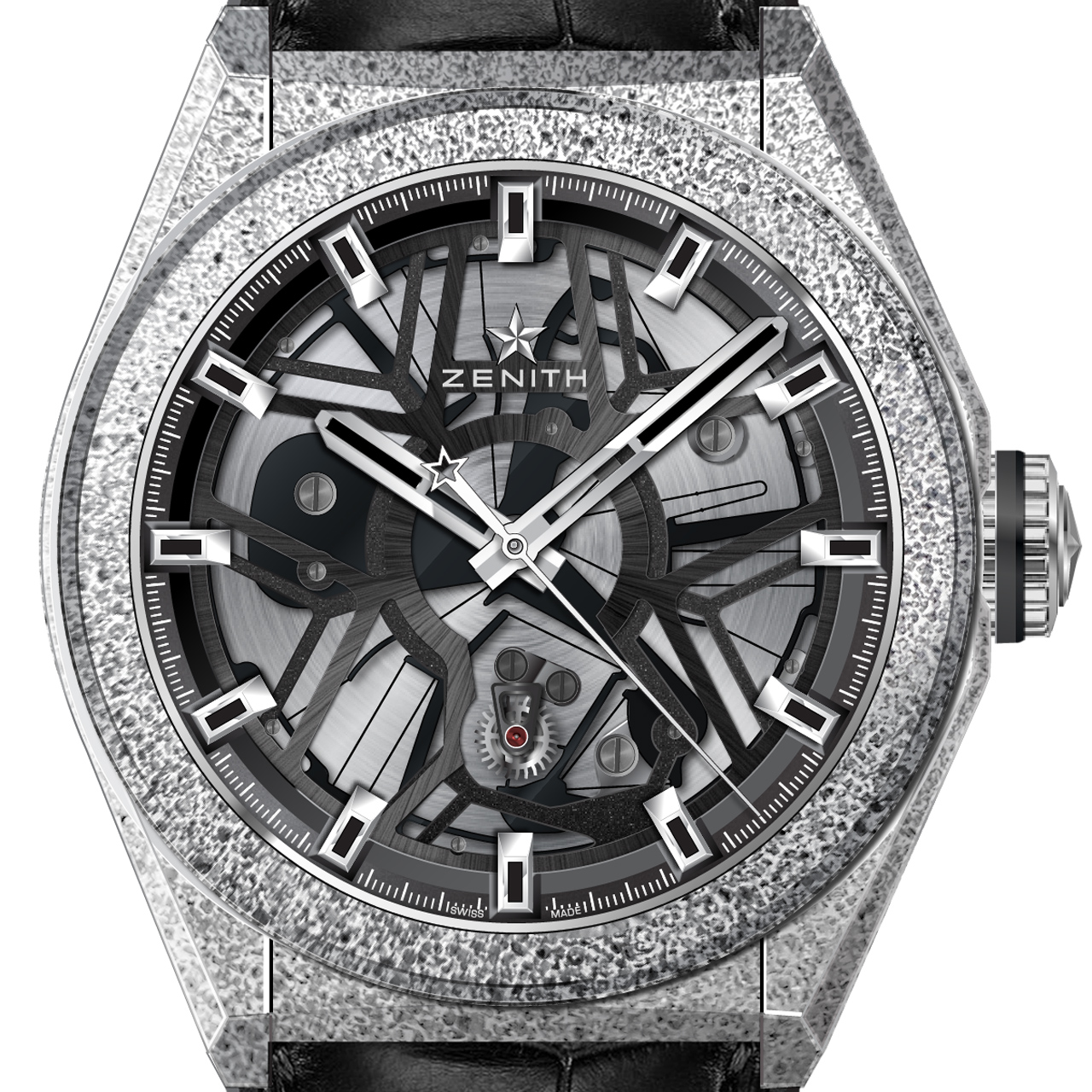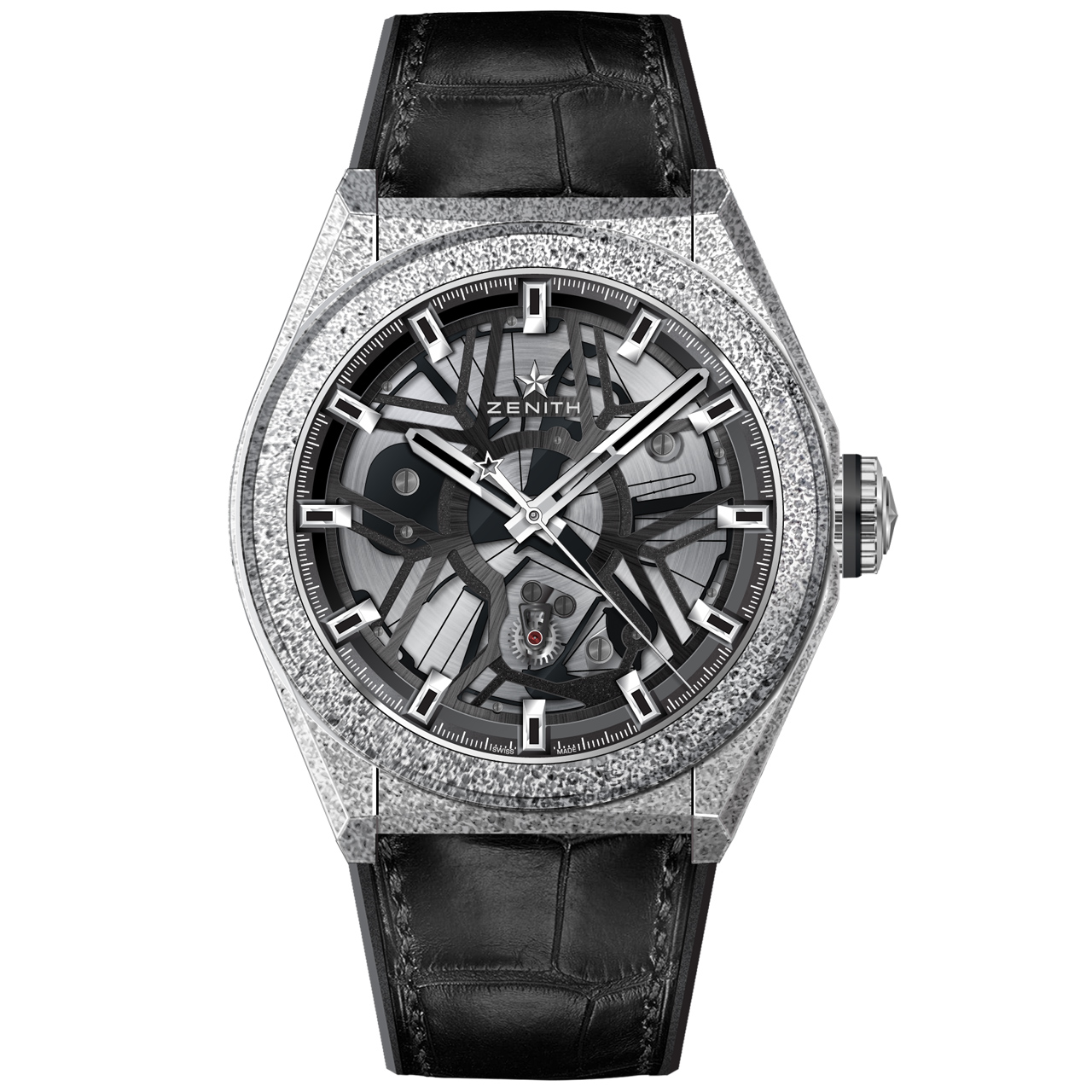
Defy Lab
Power reserve: 60 h, 108'000 vph
Skeleton movement
The reinvention of the mechanical watch
In 1675 a scientist, the Dutch astronomer, mathematician and physicist Christian Huygens, demonstrated the regulation of time principle by means of a coupled balance and spring, or ‘sprung balance’, a basis can still be found in all current mechanical watches. This invention was partially based on the work of Ignace-Gaston Pardies, a learned mechanical scientist who corresponded with Newton. He presented the isochronism of mechanical vibrations to the French Academy of Sciences in 1673, but unfortunately died before he had published his proofs.
In 2017 it is again a scientist who, 342 years after Christian Huygens, calls into question the principle of regulating a mechanical watch by means of a balance and hairspring assembly.
Performance, aesthetic impact and simplifications
The LVMH Watch Division Research & Development Department – a team of scientists, engineers and watchmakers – has reinvented the mechanical watch by means of modern scientific methods and materials. For the first time in the history of mechanical watches, a technological breakthrough exploring uncharted territory in replacing the Christian Huygens principle in terms of performance, aesthetic impact and simplifications.
The acknowledged champion of high-frequency chronographs, thanks to its fabled El Primero movement, Zenith shifts up to ultra-high accuracy with the Defy Lab that is a real quantum leap in terms of performance and engineering. And this is just the start of this exciting development...
Committed to tradition
- 1969: Zenith makes its stellar contribution to the chronograph saga with the El Primero (meaning ‘the first’ in Esperanto): an integrated automatic column-wheel mechanism beating at the high frequency of 36,000 vibrations/hour (5Hz) enabling it to reach chronometer-certified tenth of a second precision. It is to this day the world’s most accurate series-made chronograph.
- March 2017: A new century brings new records based on the same DNA, as Zenith supercharges the performance of its speed machine. Defy El Primero 21 displays hundredths of a second by means of a central hand and beats at a frequency of 50 Hz, making it ten times faster and more accurate than its illustrious predecessor. For the first time in the history of watchmaking, two balance springs – entirely non-magnetic and insensitive to temperature changes, made out of carbon composite with a 100% carbon nanotube-matrix – are used for the Defy El Primero 21. Also invented, developed and produced by the LVMH Watch Division Research & Development Department, they are the first fruits of a star-studded renewal.
- September 2017: Precision and reliability are firmly embedded in the DNA of the El Primero movement of 1969 as well as in the new Defy El Primero 21. Given that the brand holds a record-breaking 2,333 chronometry prizes, it is hardly surprising that Zenith remains true to its legendary highly innovative and precision-driven roots in the ZO 342 calibre powering the Defy Lab. By adopting an entirely new scientific approach in modelling and innovating with regard to the mechanical watch, and by using modern materials and revolutionary technologies based on modern mechanical methods, the LVMH Watch Division Research & Development Department has succeeded in completely redesigning the mechanical watch. Impressive key data includes an unbelievable 15 Hz frequency with an amplitude of +/- 6 degrees, achieved by the new Zenith-Oscillator consisting of two components made of monocrystalline silicon (and in future from other pioneering materials); as well as a power reserve of 55 hours, meaning 10 percent more power reserve than the El Primero in spite of the triple frequency. Moreover, the new Zenith-Oscillator takes the form of a single piece without any mechanical linkages, instead of the 31 customary parts that require assembly, adjustment, setting, testing and lubrication.
High Tech & High Mech
With the DEFY Lab, Zenith introduces a completely newly developed movement called the ZO 342. The automatic movement with a diameter of 32.8 mm and an overall thickness of 8.13 mm reveals its revolutionary feature at first glance, since the the single 0.5 mm high Zenith-Oscillator is revealed beneath the dial. Instead of using the conventional means of regulating a mechanical watch by means of a balance and hairspring assembly with its more than 30 individual parts and a thickness of about 5 mm, the R & D Department of the LVMH Watch Division invented the monolithic regulating organ for the DEFY Lab which consists of only two components with considerably optimized functionality. The Zenith-Oscillator is an all-of-a-piece organ without mechanical linkages that replaces 31 ordinarily assembled, adjusted, regulated and controlled parts. The absence of conventional mechanical couplings eliminates contact, friction, wear, slack, lubrication, assemblies and dispersions. The wheel replacing the escapement wheel has a specific design and its cycle does not correspond to the academic behaviour of a Swiss lever escapement. It is made of silicon showing superficial oxidation.
Very High Frequency
The 15 Hz (108,000 vibrations per hour) frequency of the Zenith-Oscillator is three times the historical frequency of the El Primero movement, while showing a 10 percent higher power reserve. This simple comparison makes it possible to appreciate the improvement in energy consumption compared to a conventional balance & hairspring system. The amplitude is +/- 6 degrees, as against the more than 300 degrees of a conventional system.
Committed to precision
The measured precision of the DEFY Lab naturally meets the requirements of the ISO-3159 standard and in fact exceeds them. Never has a mechanical watch in the history of watchmaking, through any chronometry contest serial production, reached such a high level of performance and precision. Isochronism for serial production amounts to +/- 0.5 seconds from 0 to 48 hours. By way of comparison, the best conventional series systems reach somewhere in the range of +/- 2 seconds over just 24 hours. Beyond that, the accuracy of academic systems collapses due to the effect of physics. The precision of a coupled balance-spring is dependent on its amplitude. Such is not the case for the Zenith-Oscillator technology.
Triple certified
The Defy Lab is a "Tête de vipere" chronometer certified by the Observatory of Besancon on behalf of the International Bureau of Weights and Measures. The Zenith-Oscillator regulating organ is in the process of being certified as non-magnetic and meets high criteria regarding temperature variations.
With regard to the thermal behaviour the LVMH Watch Division Research & Development Department had to extend the spectrum of ISO-3159. Deviations of around 0.3 seconds per day and per degree Celsius of deviation, which is twice as good as the standard recommends, are certified. This variance is also measured on the thermal spectrum -7°C to +53°C, whereas the standard is limited to +8°C to +38°C.
The watch obviously meets the magnetic criteria of ISO-764. It even exceeds them by nearly 18 times (the completed watch), that is to say 88,000 Amperes per meter or 1,100 Gauss. And there is no need for an extra inner case to meet these criteria.
A Double World Premiere in the world’s most precise mechanical watch
The all-new high-tech composite material of the Defy Lab case is called Aeronith and represents the second world premiere in this watch. Invented by the LVMH Watch Division Research & Development Department and featuring a density of just 1.6 kg / dm3, it is the world’s lightest existing aluminium composite: 2.7 times lighter than titanium, 1.7 times lighter than pure aluminium and even 10% lighter than carbon fibre composite. Aeronith is produced using pioneering technologies and consists of porous aluminium, the interspaces of which are filled with polymethylmethacrylate to make the case material as light as possible and also as strong as possible. This gives this material the necessary mechanical properties for the perfect use as a watch case, while at the same time minimizing the density and thus also the weight. With the Defy Lab, a world premiere movement feature is housed in a world premiere case material.
Mechanical watches enter a whole new era
The material used for the Zenith-Oscillator is monocrystalline silicon coated with a layer of silicon oxide. The absence of conventional mechanical couplings in this system eliminates contact, friction, wear, slack, lubrication, assemblies and dispersions. Less parts, made out of new pioneering materials and technologies, deliver improved functionality, resulting in the most precise mechanical watch in history. And that is the future of watchmaking.
Defy Lab, the signature of an authentic Swiss manufacture, and the promise of new innovations to come.


